“If only those things didn’t exist,” you might grumble to yourself as you nurse yet another mosquito bite while searching for the repellent.
And it seems like a logical thought. Given the massive impact that mosquitoes have on human health – especially in the sub-Saharan region where they’re responsible for transmitting life-threatening ailments – wouldn’t it be better for everyone if mosquitoes went extinct?

In terms of no longer having to deal with irritating flying pests, a mosquito extinction event seems like an attractive idea.
But there are many reasons why the world needs these little creatures to stick around.
Why? We answer that in this article, which looks at what might happen if mosquitoes went extinct.
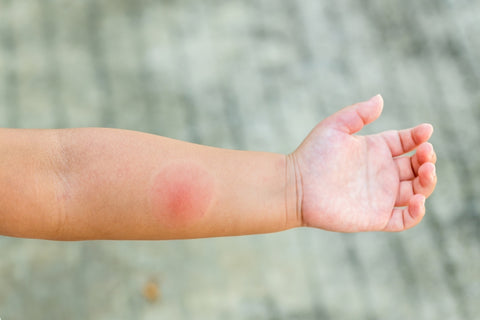
The Case for Extinction
First, let’s look at why people would want mosquitoes to go extinct in the first place. The most obvious reason is that they’re an annoyance.
Anybody who’s ever come back from a hiking trip with a collection of itchy bites to their name can tell you that.
But far from being a simple annoyance, mosquitoes are an active danger, especially if you live in one of the countries where the little pests are known to carry diseases.
Thus, the elimination of mosquitoes would also eliminate one of the main carriers of the following five, often-fatal, diseases.
Malaria
Malaria is the disease that’s most commonly associated with mosquitoes though, thankfully, it’s not a disease about which most in America have to worry.
Dengue Fever
As the name implies, Dengue fever causes the afflicted to experience fever, headaches, and consistent pain that wracks the body.
Zika Virus
Zika virus isn’t a direct killer in the same way as malaria and Dengue fever.
In fact, most people who contract it from mosquito bites don’t even realize they have it, with the few who display symptoms typically experiencing rashes, fevers, and joint pain for about a week.
Yellow Fever
Another disease carried by mosquitoes that primarily affects Africa – over 90% of cases occur there – yellow fever is similar to Zika virus, at least in the dangers it presents to people.
West Nile Virus
West Nile virus is carried by mosquitoes all over the world, with WHO reporting that it’s present in North America and Europe, as well as Africa and the Middle East.
Making the Case for Mosquito Extinction
So, the case for the elimination of mosquitoes is simple – without them on the planet, we have about 689,000 fewer deaths per year and no risk of infant mortality caused by Zika virus transmission.
Yes, their bites are irritating but the reality is that mosquitoes, like most creatures, serve a very important purpose to the ecosystem.
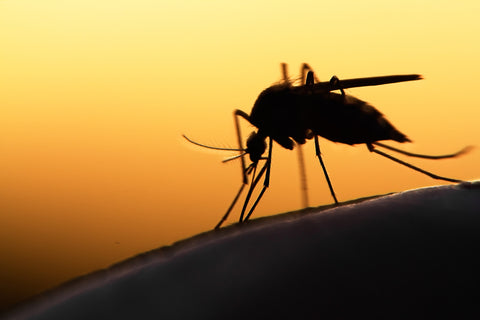
The Case Against Mosquito Extinction
A mosquito extinction event would have a massive impact on the planet’s ecosystem for several reasons.
The following, which collectively make the case against getting rid of the flying pests, showcase the changes to the ecosystem that would occur if mosquitoes no longer existed.
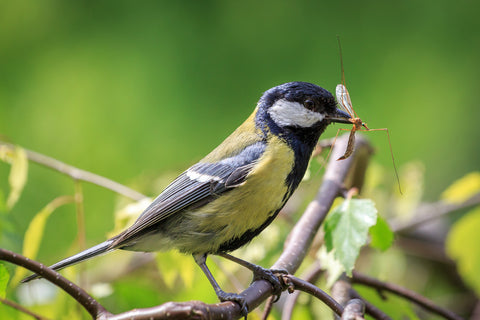
Mosquitoes Provide Food to Many Animals
While it’s easy to see mosquitoes as predatory creatures that exist solely to suck blood from living creatures, the fact is that they’re fairly low on the food chain. Tons of other animals rely on mosquitoes as a food source:
- Bats
- Several specials of birds
- Catfish
- Goldfish
- Guppies
- Dragonflies
- Turtles
- Spiders
- Beetles
While it would be inaccurate to claim that mosquitoes are the only sources of food for many of these creatures – most eat other insects, too – it’s fair to say that the elimination of the bugs would cause food chain issues.
Many creatures would lose a big food source. Not ideal in a world where those food sources are already limited and difficult to obtain for many of these animals.
In fact, it’s possible that some species of bats (along with a few birds) would experience severe population trauma with the extinction of mosquitoes because they’d lose a major food source.
And that results in another potential issue – the knock-on effects of lowered populations on other animals.
For instance, several of the animals in the above list may be predators of mosquitoes, but they’re prey to other animals.
Take the guppy as an example. Almost any large carnivorous fish will chow down on little guppies, with angelfish, crayfish, barbs, and red-tiger sharks all being known to have a taste for this little aquatic delicacy.
If mosquitoes go extinct, guppies lose a major food source as they can no longer get calories from mosquito larvae.
That could result in lower guppy populations, which means less food for their predators, and so on throughout the food chain.
So, there are direct and indirect food chain issues that come from the loss of mosquitoes.
Every creature that relies on them for food will struggle, with those struggles creating a ripple effect through the entire chain.
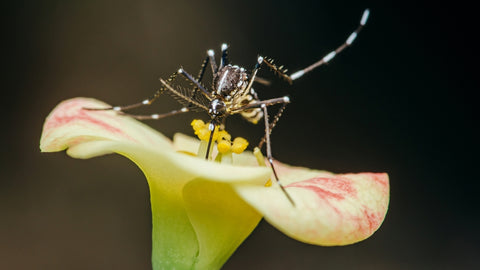
Mosquitoes Are Pollinators
When people think of pollinating insects, they automatically think of cute little bumblebees and similar insects.
But as annoying as mosquitoes are, there’s no denying that many species of the bug actively pollinate flowers and have been observed carrying pollen between plants.
For instance, the U.S. Forest Service points out that Aedes communis, more commonly known as the snow pool mosquito, is one of the most important pollinators of orchids in the northern regions of the United States.
This fact reveals something surprising about adult mosquitoes – many of them consume nectar as their primary food source.
Yes, they drink blood, too. But the bugs receive much of their sugar intake from flowers, resulting in them carrying pollen and thus being responsible for the continued development of plant life in the regions that they populate.
Mosquitoes Have a Huge Environmental Impact on the Aquatic Ecosystem
One aspect of mosquitoes’ impact on the aquatic ecosystem is clear from the section about the bugs being food sources for many animals.
Several species of fish actively hunt down mosquito larvae to consume, so losing those larvae would likely have an impact on population levels of catfish, goldfish, and any other marine species that frequents mosquito breeding areas.
But perhaps more importantly, mosquito larvae essentially serve as water filters in the areas where they’re found.
They live in the water and eat organic material, specifically the algae blooms that form in water.
And as they eat, they actively get rid of many water pollutants, many of which are found in the algae, that would otherwise be capable of harming humans.
The Environmental Protection Agency (EPA) outlines this effect quite well. According to the EPA, algae blooms form in bodies of water in all 50 states, with blue-green algae, red tides, and cyanobacteria all being examples of harmful algae blooms that contain toxins that are damaging to humans.
The EPA also points out that these blooms can cause “dead zones” in water, essentially making the water uninhabitable for other marine life.
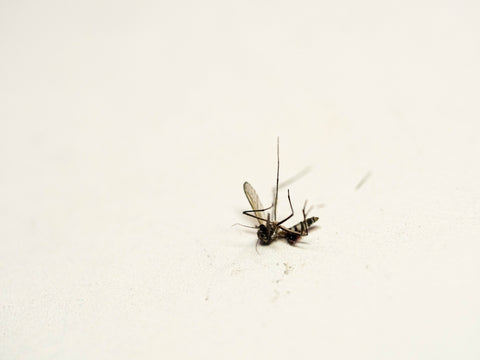
What Would a World without Mosquitoes Be Like?
The strange fact is that a world without mosquitoes may not be as wonderful as it sounds.
On the surface level, mosquito extinction seems like a great idea. It would mean the elimination of the animal that is believed to kill more humans annually than any other, saving the lives of about 700,000 people per year.
You could also argue that many of the diseases they carry would likely be wiped out, or at least come close to disappearing.
Malaria would be eradicated as mosquitoes are the only carriers of the parasites that cause the disease.
So, not only would we see fewer human deaths, at least directly, from mosquitoes, but millions would be saved from the pain and suffering that the diseases mosquitoes carry can cause.
But the fact remains that the elimination of mosquitoes would have a massive ripple effect that impacts the global ecosystem.
Animals that rely on the bugs for food would have to find mosquito alternatives to maintain their diets. Some will, especially those that don’t rely on mosquitoes for sustenance.
Others may not, and the effect that this loss of a major food source could have on population densities of the mosquito’s direct predators would have knock-on effects throughout the food chain because predator-prey relationships rely on there being another prey available for predators to survive.
As such, it’s likely that the extinction of mosquitoes would lead to other animals, such as bats, dying off.
And that ripple effect might be felt elsewhere. Assuming bat populations decreased, for instance, that’s the loss of a predator that also kills other insects. As such, the prey that these animals thrived upon may see its population levels increase.
Thus, the loss of mosquitoes could mean that other bugs, like flies, become more populous.
Of course, other insects could fill the role mosquitoes play, both in terms of being pollinators and as food sources for other animals.
But there are no guarantees. It’s just as likely that the loss of mosquitoes would have such a catastrophic effect on the ecosystem that it would lead to the loss of several other creatures.
Ultimately, it’s hard to say one way or the other. Nature is such a complex mechanism with uncountable numbers of moving parts.
All we can say is that mosquito extinction – though attractive from a human perspective – may not be the boon it appears to be if it were to occur in real life.

Would You Want to Live in a World without Mosquitoes?
Before reading this article, it’s likely that your answer to that question would have been a definite “yes.”
Even without considering the many thousands of lives that would be saved if mosquitoes didn’t exist, a world where you didn’t have to worry about getting bitten to pieces every time you stepped outside during mosquito season is an attractive one.
But it’s clear that mosquito extinction would have major ramifications for dozens – if not hundreds – of other animals, not all of them positive.
So, perhaps it’s best not to wish for the deaths of all mosquitoes, and instead to focus on using mosquito repellent, such as Tougher Than Tom’s Mosquito Eliminator Spray, to deal with the mosquitoes that affect you while leaving the rest to play their important roles in the global ecosystem.


